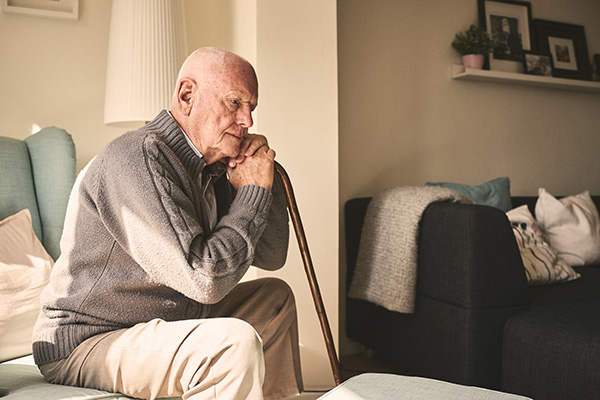Winter Health
Cold homes have a significant impact on people's health. One the best ways of keeping yourself well during winter is to stay warm.
Keeping warm over the winter months can help prevent colds, flu or more serious health conditions such as heart attacks, strokes, pneumonia and depression.
The chances of these problems are higher if you are vulnerable to cold-related illnesses because of one or more of the following:
- you're over 65
- you're on a low income (so cannot afford heating)
- you have a long-term health condition such as heart, lung or kidney disease
- you are disabled

Flu is a highly infectious illness that can spread rapidly. If you are at risk of complications from flu, you may be eligible for a free flu jab.
How to stay warm
The Government's advice on getting ready for winter aims to reduce cold-related illness and deaths. Key tips include:
- Keep your home warm. In rooms you mostly use, such as the living room or bedroom, try to heat them to at least 18°C if you can, particularly if you have a pre-existing medical condition. You can also use a hot-water bottle or electric blanket (but not both at the same time) to keep warm while you are in bed.
- You should also keep your bedroom windows closed at night. Exposure to low indoor temperatures can have a serious impact on your health as you get older.
- Eat well. Food is a vital source of energy, which helps to keep your body warm. Try to make sure that you have hot meals and drinks regularly throughout the day and keep active in the home if you can.
- When you’re indoors, try not to sit still for more than an hour or so. If you find it difficult to move about, stretching your arms and legs can also help keep you warm.
- Wrap up warm, inside and out. Layer your clothing to stay warm and wear shoes with a good grip if you need to go outside. Wearing several layers of clothing will keep you warmer than one thicker layer. If possible, stay inside during a cold period if you have heart or respiratory problems.
- Check on older neighbours or relatives to make sure they are safe and well. Make sure they are warm enough, especially at night, and have stocks of food and medicines so they don't need to go out during very cold weather. If you are worried about a relative or an elderly neighbour, contact your local council or ring the Age UK Advice Line on 0800 678 1602.
Cold weather benefits
You may also be able to claim financial and practical help with heating your home. Grants available include the Winter Fuel Payments and Cold Weather Payments.
Winter Fuel Payments are avaliable if you were born before 26 September 1956. You could get between £250 and £600 to help you pay your heating bills.
To find out more about Winter Fuel Payments, please call 0800 731 0160 (8:00am-6:00pm Monday-Friday), textphone: contact Relay UK on 18001 then 0800 731 0160), or visit: https://www.gov.uk/winter-fuel-payment.
Cold Weather Payments may be available to you if you receive certain benefits or have a child who is disabled or under the age of five.
To find out more about Cold Weather Payments, contact Jobcentre Plus (click here to find your nearest office) or visit https://www.gov.uk/cold-weather-payment.
The Energy Saving Trust (EST) has advice on how to reduce bills and make your home more energy efficient. They can also advise on grants and schemes available around the UK. Find out more online from the EST website or call Simple Energy Advice on 0800 098 7950 (8:00am-6:00pm Monday-Friday (except bank holidays) and 9:00am-12:00pm Saturday).
For more information on cold weather benefits and other help available, please click here to read the 'Top tips for keeping warm and well this winter' document created by the UK Health Security Agency and Age UK.
INDEX - Self-Help-Centre
Self-Help Information
- Age Well
- Better Health
- Charity Websites
- Choose Well
- Covid Recovery
- Exercise Programmes
- Health A - Z
- Healthy Start Scheme
- In Times of Bereavement
- Live Well
- MiDOS - Local Service Directory
- Patient Information Leaflets
- Pharmacy First
- Sexual Health
- Winter Health
Health Checks
We use cookies to help provide you with the best possible online experience.
By using this site, you agree that we may store and access cookies on your device. Cookie policy.
Cookie settings.
Functional Cookies
Functional Cookies are enabled by default at all times so that we can save your preferences for cookie settings and ensure site works and delivers best experience.
3rd Party Cookies
This website uses Google Analytics to collect anonymous information such as the number of visitors to the site, and the most popular pages.
Keeping this cookie enabled helps us to improve our website.

